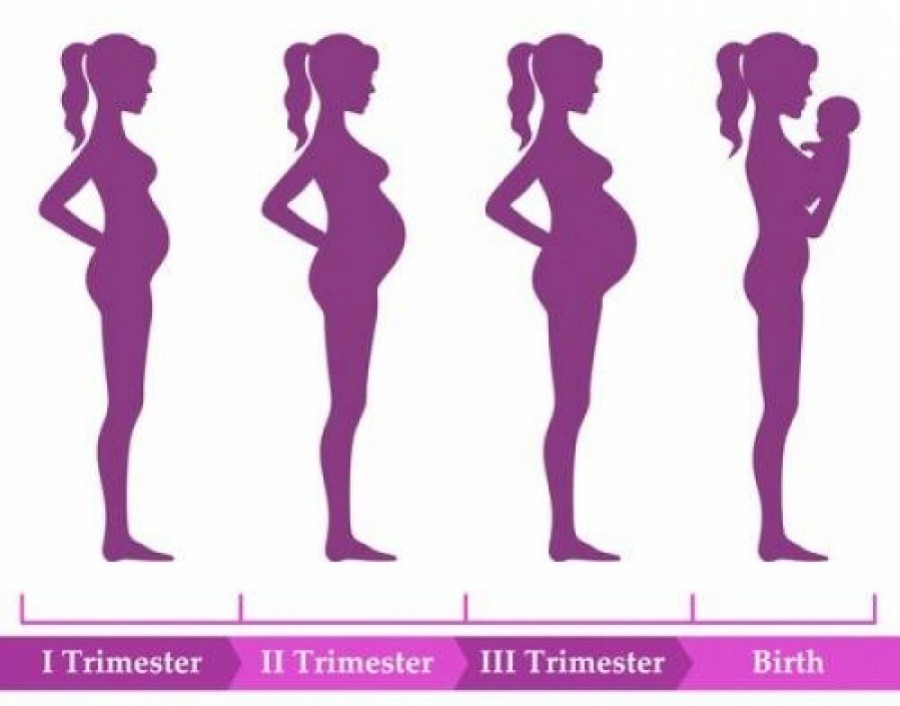Underweight Pregnancy: Risks for You and Your Baby

Pregnancy can take form in all shapes and sizes. Although there are many health risks associated with gaining excess weight, being underweight during your pregnancy can also have adverse effects on the health of you and your baby.
Whether you are already pregnant or looking to conceive, here are some things you should know about being underweight:
Am I underweight?
While you should always ask your healthcare practitioner about what is your optimal weight to conceive and how much you should gain during each stage of your pregnancy; there are ways at home to you can see if you’re on the right track.
Calculating your BMI (body mass index) is one. It is a ratio between your height and weight and is a rough tool to estimate if your weight is within a healthy range for your height.
This is done using the formula kg/m2, where your weight in kilograms is divided by the square of your height in metres. If the quotient is below 18.5, you may be underweight.
Another measure is body fat percentage, and for healthy and regular ovulation, women should hover above 17% body fat.
Low weight and low body fat often go together, so underweight women may have a lower chance of being able to conceive. Having low body fat may disrupt the natural hormone release needed for ovulation. Irregular ovulation reduces your chances of getting pregnant.
These are only guidelines to help gauge whether you should be concerned. Some women are naturally thinner, while others carry a bit more weight, therefore BMI and body fat are by no means to be used as the sole determinant of health. Ultimately your doctor will prescribe what a healthy amount of weight gain is; but, keep in mind that the general guideline for underweight expectant mothers is to gain 12-18kg.

Risks for baby
Being underweight during pregnancy can take a serious toll on your baby. If you have entered the pregnancy at a low weight, the chances of miscarriage in the first trimester are increased. This is thought to be due to iron and folate deficiency.
Underweight women are also more likely to experience a pre-term birth (before 37 weeks) or have the baby born at a low gestational weight. Low gestational weight is often the indicator of insufficient nutrient intake during the baby’s time in utero. Restricted baby growth can also lead to intervention during your labour and delivery, like Caesarean procedure or forceps and ventouse.
Babies born underweight can have immediate health effects that would be treated for in the NICU (hypothermia, low blood sugar) but can also develop poor feeding or be more susceptible to viral infections.
Underweight newborns are also likely to experience health problems in later life. These can range from diabetes to metabolic syndrome to heart disease. Some studies also show links between women who gained too little during pregnancy and increased risk of infant mortality within the first year of life.
Risks for you
Maternal health is really important. Sufficient weight gain during pregnancy is not just required for the wellbeing and health of your baby, but for you as well. When you’re pregnant, if you are not getting adequate nutrition, your body will take away from your own reserves to make nutrients for the baby, especially in the first trimester. In later life, this can put you at increased chances of developing anaemia and osteoporosis.
Being underweight after your baby is born, can also affect your breast milk supply. While there are ways to supplement your baby’s nutrition, many will argue breast is best, especially if your baby is born at low gestational weight. Building adequate fat reserves can help with being able to breastfeed successfully. Nutritionally speaking, breastfeeding is quite taxing on your body, and if you are underweight, you may need work even harder to make up for to the nutrients and calorie intake.

Hiring a dietician
If your doctor or midwife diagnoses you as underweight, there are certain steps you can take to attain a healthy weight for your pregnancy. It can be difficult to gain weight on your own, even if you want to.
Between nausea, keeping up with exercise, and changing appetite – it can be overwhelming if you’re not getting sufficient caloric intake.
Working with a registered nutritionist or dietician to develop a food plan for adequate and consistent weight gain, is one option to help you get there. You’ll likely be prescribed a mix of prenatal vitamins and supplements (like folic acid, iron) as well as a nutrient-dense and rich diet, to ensure that both you and baby are receiving adequate nutrition.
What you can do on your own
Slow and steady weight gain during pregnancy is most optimal. Incorporating healthy fats and extra protein into your diet can be the way to increase your caloric intake. Some ways to enhance your diet for successful weight gain at home are:
- Snacking! Try to add a few snacks in between your meals. A handful of nuts or some pregnancy-friendly cheeses can give you that extra boost of nutrients, protein, calcium, and iron.
- Keep a pregnancy food journal, to track any changes in moods or appetite. Discuss these with your healthcare professional.
- If you’re constantly nauseous, crackers and peanut butter or avocado can be the way to go. Smaller and more frequent meals are your friends since your progesterone levels decrease your rate of digestion.
- Cut down or modify the exercise if you were a hard-core gym rat before pregnancy. Eating to supplement exercise, on top of already eating for two, can be a lot of calories to make up. Lowering your expenditure can help you gain weight.
- Replace light or diet food choices with full-calorie alternatives.
If you are concerned about your weight being too low, before or during pregnancy, it is vital to speak to your healthcare provider. You may have people in your life commenting on your weight or appearance during pregnancy, however, your doctor’s input is more important. If they are not concerned, then neither should you be. All that matters is adequate nutrition for healthy mum and healthy bub— not the numbers on the scale.


